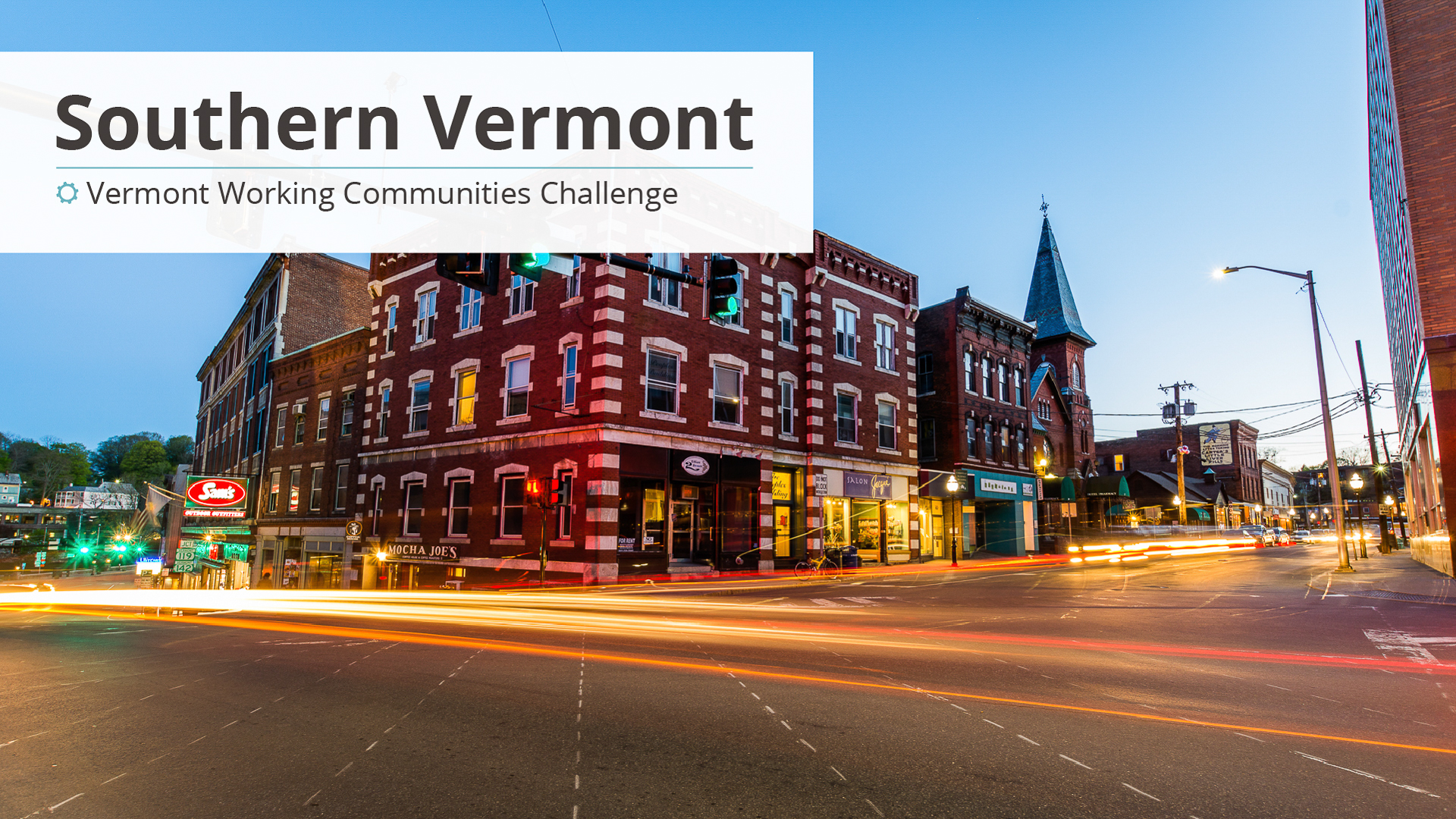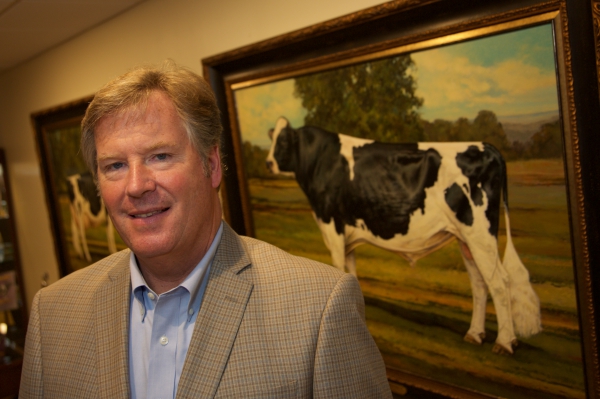
Vermont Working Communities Challenge Hosts First State Summit to Exchange Ideas
What do a lantern, carabiner, and trail mix have to do with community development?
Vermont Working Communities Challenge hosts its first state summit to exchange ideas
The centerpieces of the tables that filled Judd Hall at Vermont Technical College all contained the same three items: a lantern, carabiner, and bags of trail mix. But this was not a gathering of hiking enthusiasts.
Those three items represented the goals of the day for attendees who were part of the first-ever in-person Vermont Working Communities Challenge’s state summit:
- Lantern: learning
- Carabiner: connecting
- Trail mix: refueling
The Vermont Working Communities Challenge, or VT WCC, announced its eight grant recipients in 2020 and in February, and the teams have since been designing and implementing initiatives that aim to build strong, healthy economies in small and rural communities statewide.
The summit Thursday was the first time the teams were able to interact and share ideas face-to-face.
“This is a rest stop on the journey that is the Working Communities Challenge,” Working Communities Director Steve Michon told the group. “Use this gathering as a moment to stop, learn, refuel, and connect.”
Teams share what they’ve learned through progress and challenges
The VT WCC is part of the Federal Reserve Bank of Boston’s Working Places community development initiative. Many of its teams are tackling broad issues, including workforce development and child care, but all are focused on addressing Vermont’s aging, shrinking labor force, which will be hard-pressed to meet the needs of the global economy. The teams are tailoring plans to meet the needs of each community, but they’re also facing similar challenges, and stories of progress and obstacles Thursday resonated in the meeting, team members said.
“Getting to the root cause to create system change is hard work,” said Jessica Savage of the Vermont Council on Rural Development, who advises all eight teams in the program. “But it’s cool to see the teams acknowledge that it’s hard, but we’re going to do it anyway.”
Teams also heard from Working Communities Challenge supporters, including the Doris Duke Charitable Trust.
“You’re showing the country a way we can address problems that are happening across the country,” said Sam Gill, president and CEO of the Doris Duke Charitable Foundation.
“All your teams are doing things to help the Fed meet its dual mandate to maximize employment, especially in small and rural communities, and promote stable prices,” added Boston Fed Community Affairs Officer Prabal Chakrabarti.
Summit attendee: Building deeper connections today will help with work tomorrow
The Working Communities Challenge Vermont team members were joined at the summit by Boston Fed staff and representatives from the organizations that make up the program’s steering committee.
“Having influential people here is energizing, and we’re getting new perspectives and new ideas,” said Emily Rosenbaum, project director of the Working Communities Lamoille County team. “Sometimes you go so deep into the work that you don’t see the broad picture. The more you can touch the big picture, the more energy for what’s ahead.”
The summit’s break-out strategy and discussion sessions allowed the teams to build deeper connections with one another, and that will only help future work, Rosenbaum said.
“It’s very clear there’s such diversity here, and there’s different approaches, but there’s still commonality in our work,” she said.
Local leader tells teams how much their work means for Vermont’s present and future
Summit organizers made sure the gathering wasn’t just about learning – it was also about celebrating progress and motivating attendees to continue their work.
Ted Brady is executive director of the Vermont League of Cities & Towns, an organization that has been involved with the Vermont Working Communities Challenge since its inception. He told the teams he hopes they understand the gravity of their work to the people of Vermont and the state’s efforts to promote economic prosperity.
Brady noted that the work being done by the teams may be difficult at times, but he feels confident they are equipped to implement real economic change because they are so well connected with their regional partners.
“The only way that these things can change is by local action by local leadership by local collaboration,” he said.
Learn more about the Southern Vermont Working Communities Team:
https://brattleborodevelopment.com/vermont-provides-2-32m-to-expand-working-communities-challenge/
https://brattleborodevelopment.com/working-communities-interview-with-gnat/
https://brattleborodevelopment.com/southern-vermont-working-communities-team-progresses-to-planning-phase/



